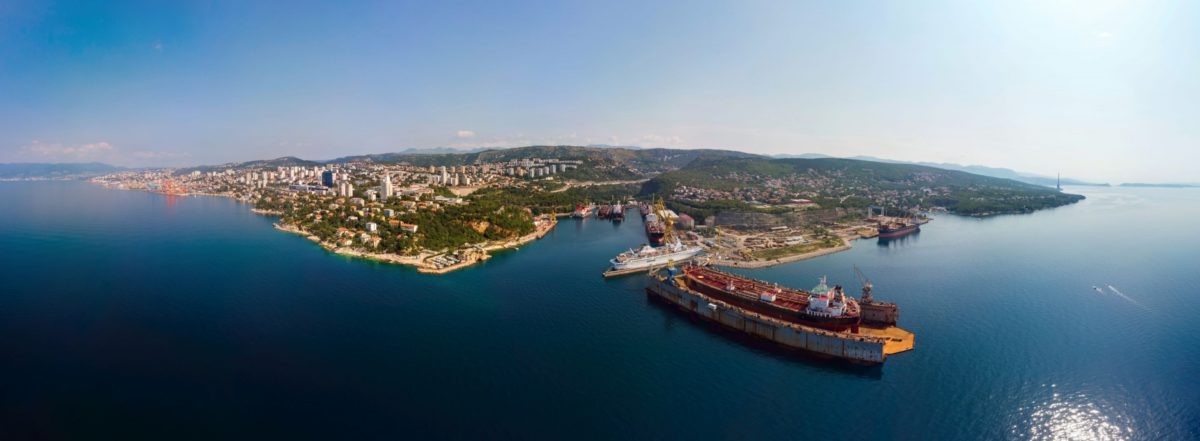Viktor Lenac Shipyard (VLS), one of the largest shipyards in Croatia, is developing a pilot project to install a seawater heat pump. The system will cover most of the heating and cooling needs of its building complex in the town of Martinscica.
The EU-funded Seawater Heat Pump Project aims to replace an existing water-to-water heat pump and electric boilers with a new heat pump, which will use seawater as its heating source. The existing system has a required output of 280 kW, with 100 kW provided by the water heat pump.
“The existing heat pump draws thermal energy from the process water which is further used in the flow system to maintain a minimum temperature of 3 C, however, due to the high costs of the concession fee for the process water, the operation of the heat pump is neither financially profitable nor adequately energy efficient, which represents the problem that the project aims to solve,” VLS explained on the project’s website.
VLS said the new heat pump’s main advantage is the relatively constant temperature of the seawater throughout the year.
“Due to the more favorable temperature parameters of seawater compared to process water, the heating factor of the seawater heat pump is large,” says VLS.
VLS recently launched a tender to find companies to offer preparatory services to support the design and technical documentation needed to build the seawater heat pump. The deadline for submissions is Feb. 24, 2023. The contract has an estimated value of €30 million ($32 million).
The installation of the seawater heat pump is expected to reduce electricity consumption by 155,872 kWh/year and CO2 emissions by 36,600 kg/year. The project has a total projected value of €480 million and is backed by €233 million of grants from the Croatian Ministry of Regional Development and the European Union. Development started in June 2022 and completion of the project is expected by March 31, 2024.
This content is protected by copyright and may not be reused. If you want to cooperate with us and would like to reuse some of our content, please contact: editors@pv-magazine.com.



By submitting this form you agree to pv magazine using your data for the purposes of publishing your comment.
Your personal data will only be disclosed or otherwise transmitted to third parties for the purposes of spam filtering or if this is necessary for technical maintenance of the website. Any other transfer to third parties will not take place unless this is justified on the basis of applicable data protection regulations or if pv magazine is legally obliged to do so.
You may revoke this consent at any time with effect for the future, in which case your personal data will be deleted immediately. Otherwise, your data will be deleted if pv magazine has processed your request or the purpose of data storage is fulfilled.
Further information on data privacy can be found in our Data Protection Policy.